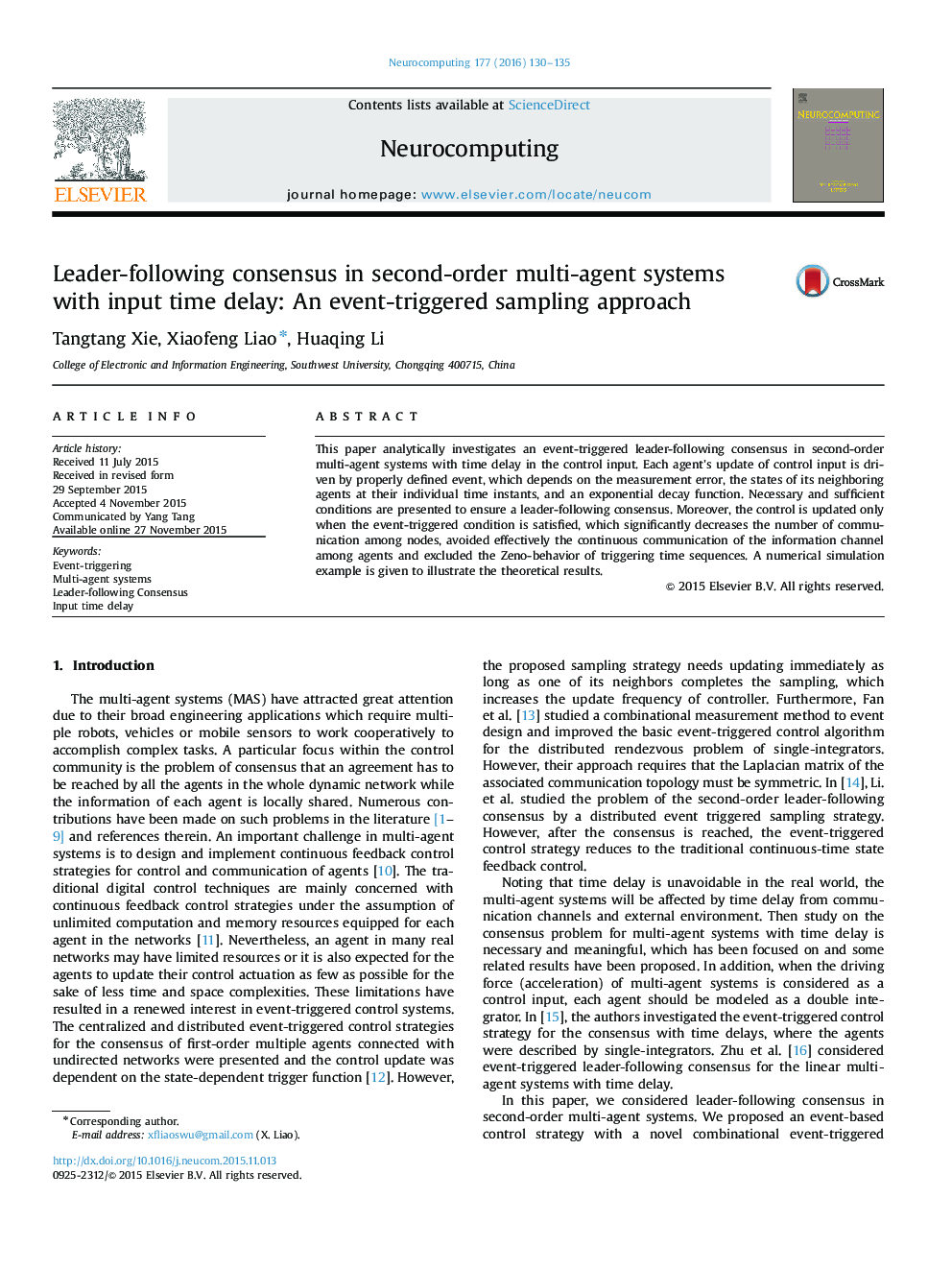| Article ID | Journal | Published Year | Pages | File Type |
|---|---|---|---|---|
| 408954 | Neurocomputing | 2016 | 6 Pages |
This paper analytically investigates an event-triggered leader-following consensus in second-order multi-agent systems with time delay in the control input. Each agent׳s update of control input is driven by properly defined event, which depends on the measurement error, the states of its neighboring agents at their individual time instants, and an exponential decay function. Necessary and sufficient conditions are presented to ensure a leader-following consensus. Moreover, the control is updated only when the event-triggered condition is satisfied, which significantly decreases the number of communication among nodes, avoided effectively the continuous communication of the information channel among agents and excluded the Zeno-behavior of triggering time sequences. A numerical simulation example is given to illustrate the theoretical results.
